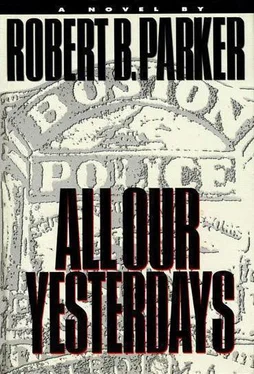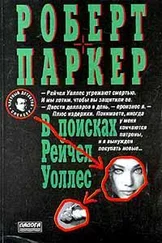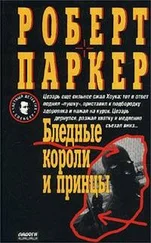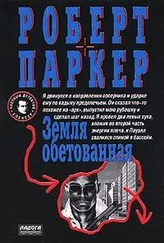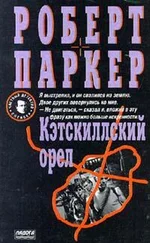“What did you say Chris would do?”
“He’ll help you manage your money,” he said.
She poured herself some more bourbon.
“I don’t know anything about money,” she said.
“I know.”
“You think I’m stupid, don’t you? Well, let me tell you right now, that if you would have listened to me you wouldn’t be in trouble. When Ellie Gavin’s husband retired they had a nice home in Scituate, only two blocks from the water.”
Gus smiled. Some things change, some things don’t.
“I’m not retiring, Peggy. I’m going to jail.”
“And what am I supposed to tell people?” Peggy said. Her face wasn’t pale anymore. It was flushed with anger, and bourbon. “That my husband’s a crook?”
“That’s about right,” Gus said.
“Well, all I can say to you, Mr. Big Shot, is that I am dreadfully disappointed.”
“Yeah,” Gus said. “Me too.”
“And not just in you. Chris can’t even hold on to a girlfriend and now he’s going out with God knows who, and you mark my words, they’ll take him for all they can get.”
“I don’t think he’s giving them money, Peg. I think they’re fucking him free.”
“And don’t you bring that policeman gutter talk into my kitchen.”
Gus stood.
“We’ve known each other forty years, Peg. And it’s been a long time since we liked each other.”
“What are you talking about? We’re married.”
“I’m leaving,” Gus said. “You keep the house. You got enough money if you don’t let somebody take you for all they can get.”
“What do you mean you’re leaving? Leaving to where?”
“I’m leaving you, Peg.”
“You’re leaving me? You mean for good?”
“Yeah.”
“You mean you’re going to divorce me?”
“Yeah.”
Peggy drank more bourbon.
“You let some whore get her claws into you. You think I didn’t know, all those nights you were out, you pig. You think I didn’t know you were with some prostitute?”
Peggy had had enough bourbon to have trouble with the word prostitute .
“Doesn’t matter, Peggy,” Gus said.
He turned and walked from the kitchen.
“You think you can get away with this,” Peggy shouted, “you’ve got another think coming. I’ll take you for everything you’ve got.”
Gus opened the front door and started out.
“You already have,” Gus said.
Gus was sitting on the steps of Chris’s half-house condo in Cambridge, when Chris came home.
“Jesus, Dad. You look like a homeless waif sitting there,” Chris said.
“I was thinking about dogs,” Gus said. “What kind of dogs you’d have if you owned property on the Concord River, and you had it fenced, and they could run around.”
“You been talking about that as long as I can remember,” Chris said as he unlocked the door to his side of the house. “You want a drink?”
“Yeah.”
Gus followed Chris into the kitchen and sat at the kitchen table, which had natural-stained pine legs, and a green top painted to look like marble. The house was all Crate and Barrel, Grace had told him once, when she used to live here too. Gus had never been in Crate and Barrel. Chris made Gus a Scotch and soda and got a bottle of Saratoga beer from the refrigerator. Chris drank every new heal beer that appeared. Fresh is best. Would you go to Germany for bread? He put Gus’s drink in front of him and sat across from his father at the table. His black knit tie was open. His white button-down shirt was loosened at the collar. His gray tweed jacket fitted him easily. Gus always envied that. His own clothes never fit. Always his jackets were tight at the arms, and pulled across the chest. Chris’s face was clean shaven. His features were regular, his big eyes were full of intelligence. Sometimes Gus saw Peggy in Chris’s face, sometimes himself, but mostly, almost furtively, the look of Gus’s father. Gus reached across the table and patted his son’s forearm. Chris smiled. Gus stood and made himself another drink and took in a third of it at a single swallow.
“We going to get drunk?” Chris said.
“We might,” Gus said. “We’re Irish.”
“We got a genetic right,” Chris said. He drank some beer.
“You ever have a dog?” Chris said.
Gus shook his head.
“My mother wouldn’t have an animal in the house. Said it was filthy and uncivilized. Your mother felt the same way.”
“I was thinking I might get one,” Chris said. He grinned. “Being a single guy, soon to be unemployed, I can do whatever the hell I want.”
Gus nodded and swallowed most of his drink.
He made another one and leaned his hips against the counter, and sampled it. Chris’s beer bottle was half empty. Gus reached in the refrigerator and got another one and opened it and set it down beside Chris.
“Getting fired bother you?” Gus said.
Chris shrugged.
“Yeah. I mean I’d like to say no, fuck ’em. But, yeah, it bothers me. It was my chance to do something. It bothers me that I failed.”
“You didn’t fail. You got sold out.”
“By who?”
Gus took another drink.
“Butchie and Patrick had a cop in their pocket. They knew everything before it happened.”
Chris had his bottle half raised to drink from it. He held it there without drinking and looked past it at his father.
“Cassidy?”
“Me,” his father said.
Chris held the bottle rigid for a moment, then slowly put it down, centering it carefully in the wet ring it had left on the tabletop.
“Oh, shit,” he said.
He leaned back in his chair, his head lowered a little so that his chin rested on his chest. He didn’t say anything else. But Gus could see that his breath was deep, just the way he used to breathe when he was six, in first grade, watching Captain Kangaroo on television before the school bus came. Then he straightened and took a drink from the beer bottle.
“Well,” Chris said, “you’ll tell me about it. Before you do you need to keep one thing in mind. You’re my father. I love you. And whatever you tell me, when you’re through I’ll still love you.”
Gus’s throat was nearly closed. He took a long pull on his drink to relax it. His breath was short and rapid. He could feel the layered containment of a lifetime begin to crack. He felt as if he would cry. He drank again. It was going to break. What would be left, he wondered, after it was over?
“When my father was a young man in Ireland,” Gus said, “he was in the war with England.” His voice sounded remote to him, as if someone else were speaking. “During that time he had an affair with a woman named Hadley Winslow.”
“Grace’s grandmother?” Chris said.
“Yeah. She was a married woman, and when he wanted her to leave her husband she refused, and later, betrayed him to the British.”
Chris smiled at his father’s old-fashioned locution. Gus saw the smile.
“I don’t know how else to say it,” Gus said.
Chris nodded. His father’s voice was devoid of inflection.
“She returned to Boston with her husband, and my old man dodged the British and came here too. He claimed he was just running from the Brits, and I believe him. But I always figured he ran to Boston, because she was here. He got on the cops, and did okay and married my mother and had nothing to do with Hadley Winslow until one day her son, Tom, got in trouble with the law.”
“Grace’s father?”
“Yeah.”
Gus finished his drink and made another one. He walked down the narrow length of the rehabbed kitchen and looked out the back window at the narrow half yard surrounded by a high board fence.
“Not much room for dogs,” he said.
Читать дальше
